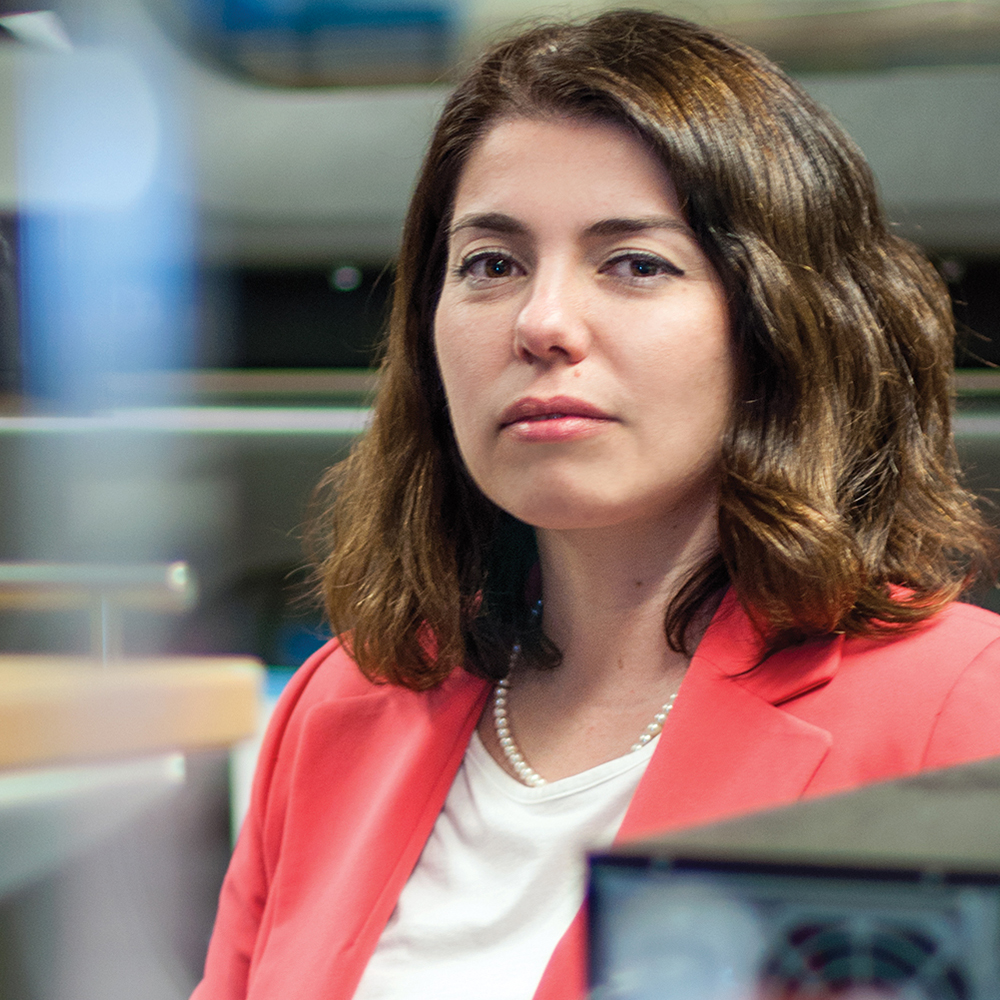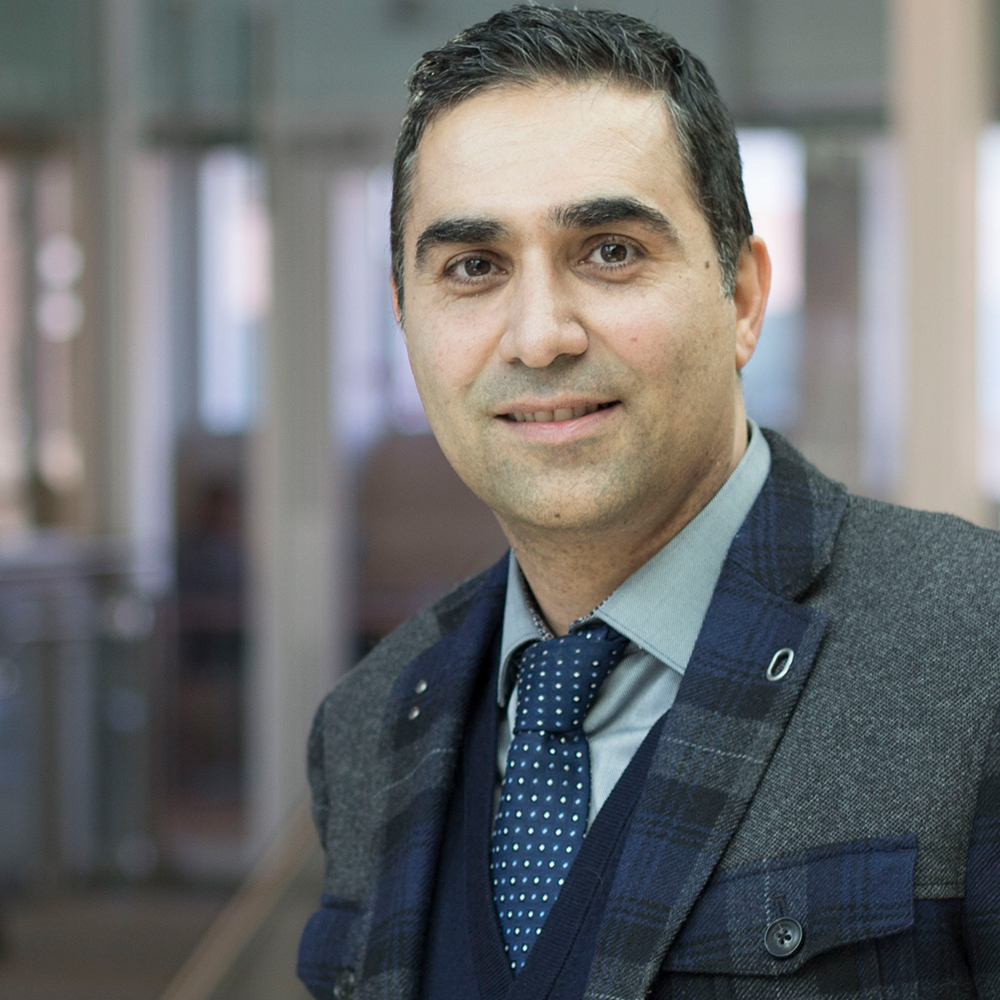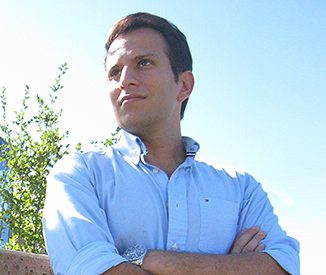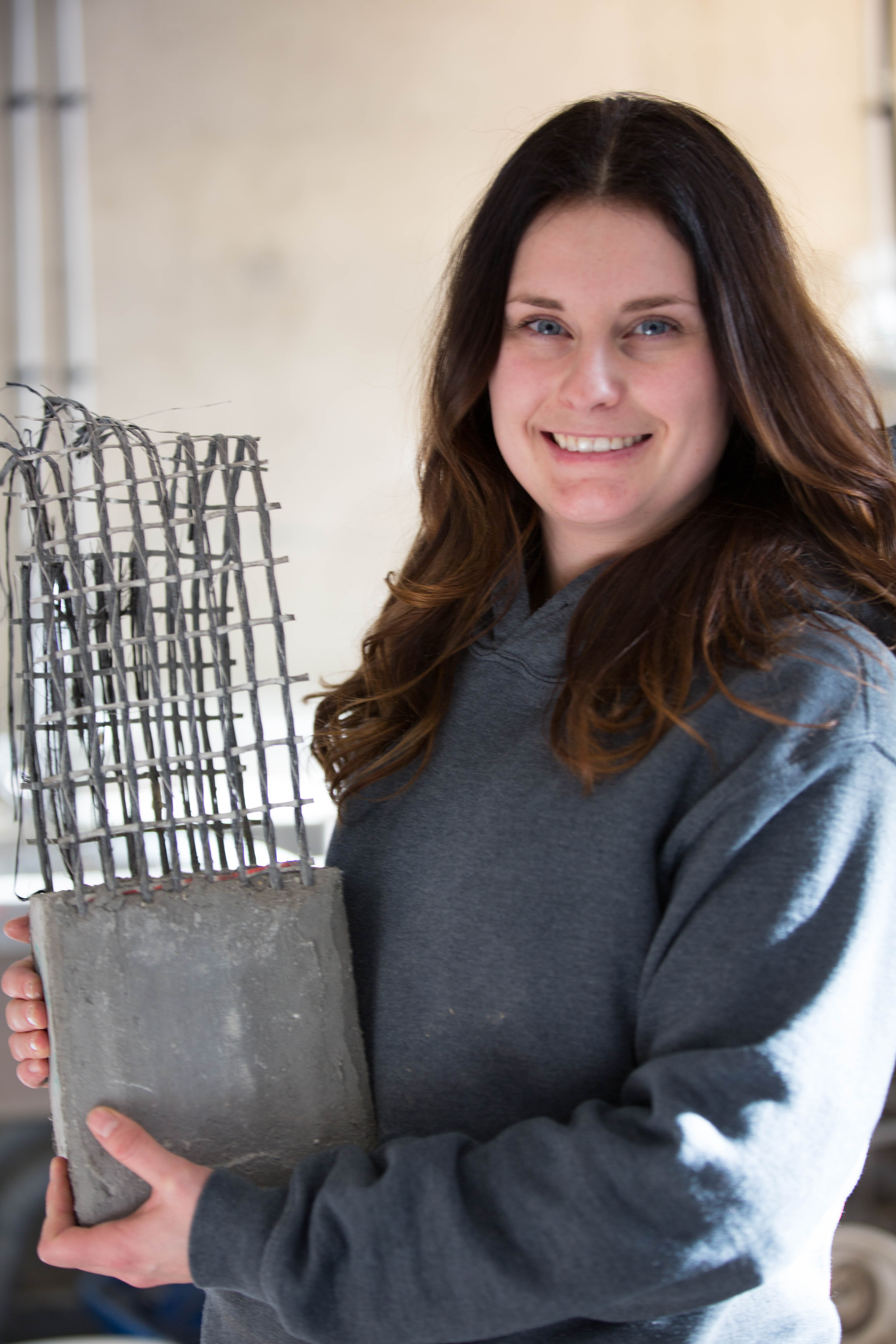Graduate Degrees

GRADUATE PROGRAM OVERVIEW
Graduate studies integrated and advanced project learning and interdisciplinary thinking in Civil, Electrical, and Mechanical Engineering disciplines.
| Program | Components | Expected Duration |
| MASc | Coursework and thesis | 18-24 months |
| MDes | Coursework | 12 months (course only) |
| MEng | Coursework | 12 months (course only) or 16-24 months (with internship) |
| PhD | Dissertation | 36-48 months |
The MASc is increasingly viewed as an entry-level degree with many engineering consulting firms due to the specialized nature of many engineering projects. It is also a prerequisite to a PhD. MASc programs are designed to meet a student’s needs within the graduate course offerings of the School of Engineering. Students select courses in consultation with their supervisor to suit research or career interests.
The Master of Design (MDes) is a 12-month, full-time professional graduate level program that blends critical design thinking, creative practice, and engineering principles within a culture of innovation, creativity and social and sustainable entrepreneurship.
The course-based MEng program is designed for engineering graduates who want to advance their careers with further education. The MEng degree program is offered for both full- and part-time students (part-time studies are open to domestic students only). In addition to courses in specific technical areas, students take a variety of courses such as technical communications, ethics, and leadership.
The PhD program is designed for engineering graduates who want to magnify their knowledge and skills through rigorous research practices related to civil, mechanical or electrical engineering. The PhD program requires the completion of required coursework, a qualifying examination, the development and defence of a research thesis proposal, and the completion of a research thesis.
Engineering Graduate Program Events and Recordings
School of Engineering Graduate Student Experience Information Session
Want to learn more about the graduate student experience at the School of Engineering, UBC Okanagan campus? Watch this session recording to discover how to find your community, make friends, find fun and free events, what it is like to work within a lab group, and resources available at UBCO.
RESEARCH & SUPERVISORS
- Advanced Control and Intelligent Systems (ACIS) Laboratory
- Advanced Materials for Energy Storage Lab
- Advanced Structural Simulation and Experimental Testing (ASSET) Group
- Applied Laboratory for Advanced Materials and Structures
- Applied Micro & Nanosystems Facility
- Bioreactor Technology Group Laboratory
- Centre for Transportation and Land Use Research (CeTLUR)
- Chau Research Group
- Combustion for Propulsion and Power Laboratory
- Communication Theory Lab
- Composites Research Network Okanagan Laboratory
- UBC-Okanagan Computational Fluid Dynamics Laboratory
- Energy Systems and Power Electronics Laboratory
- Facility for Environmental and Biological Imaging
- Feng Research Group
- Green Construction Research & Training Centre (GCRTC)
- Heart Valve Performance Laboratory (HVPL)
- Integrated Optics Laboratory
- Intelligent Sensing, Diagnostic and Prognostic Research Lab
- Laboratory for Solar Energy and Fuels (LSEF) Research
- Life Cycle Management (LCM) Laboratory
- Materials and Manufacturing Research Institute (MMRI)
- Micro-Electronics and Advanced Sensors Laboratory
- Nanomaterials and Polymer Nanocomposites Laboratory (NPNL)
- Natural Gas Fuel System Laboratory (NGFSL)
- Okanagan Laboratory for Control Systems Research
- Okanagan Polymer Engineering Research & Applications (OPERA) Lab
- Pakpour Biomedical Microbiome Research Laboratory
- Research in the Advanced Thermo-Fluidic Laboratory (ATFL)
- RF and Microwave Technology Research Laboratory
- Sensing, Diagnostic and Prognostic Research Lab
- Sustainable Transport Safety Research Laboratory
- Thermal Management & Multi-phase Flows Lab (TMMFL)
Graduate students and postdoctoral fellows can pursue these and other faculty research and teaching interests (please note that students wishing to undertake research in Manufacturing Engineering can register in Mechanical Engineering or Electrical Engineering) :
Civil Engineering
- Applied Microbiology
- Biological Treatment of Water and Waste Water
- Drinking Water Treatment and Distribution
- Construction Materials
- Geohazards Assessment and Mitigation
- Life Cycle Management in Construction
- Solid Waste Management
- Structural Design and Strengthening
- Sustainable Transportation
- Sustainable Urban Development
Electrical Engineering
- Digital Systems
- Electromagnetics
- Materials
- Microfabrication
- Photonics
- Power Electronics
- Power Systems
- Radio Frequency (RF) Systems
- Sensors
- Wireless Communications
MANUFACTURING Engineering
- Additive Manufacturing
- Adaptive Robotics
- Artificial Intelligence
- Autonomous Systems
- Digitalization
- Factory Planning
- Operations and Supply Chain Management
- Production Management
Mechanical Engineering
- Advanced Materials
- Biomechanics
- Biomedical Engineering
- Computational Mechanics
- Design and Optimization
- Dynamics and Vibration
- Mechatronics and Control
- MEMS / NEMS
- Thermofluidics
The success of UBC Okanagan’s Engineering Graduate Program depends on exceptional students.
Please touch base with a faculty supervisor before you start the application process. We look forward to hearing about your research interests and career goals.
Role:
Programs/Disciplines:
Search Keyword:
Ahmad Al-Dabbagh | Assistant Professor | ahmad.aldabbagh@ubc.ca | EME 4287
Graduate student supervisor
Research Interests: Control systems; automation systems; fault diagnosis; cyber security; alarm management
Shahria Alam | Professor | Civil | shahria.alam@ubc.ca | 250.807.9397 | EME4211
Graduate student supervisor
Research Interests: Smart materials; Seismic rehabilitation of steel, concrete, masonry; Seismic analysis and building design
Mohammad Arjmand, PhD | Assistant Professor | Mechanical | mohammad.arjmand@ubc.ca | 250.807.9134 | EME 3207
Graduate student supervisor
Research Interests: Synthesis of Multifunctional Conductive and Magnetic Nanomaterials; Polymer Processing and Forming; Multifunctional Polymer Nanocomposites; Gas Sensors; 3D Printed Polymer Nanocomposites; Circular Economy and Plastic Recycling
Wouter Bam | Assistant Professor | Manufacturing, School of Engineering | wouter.bam@ubc.ca | EME3271
Graduate student supervisor
Research Interests: Decision support systems; sustainable development; economic complexity; multi-objective optimization; regional development; applied machine learning; industrial policy; circular supply chains; location decisions; global value chains
Lukas Bichler, PhD | Professor | Manufacturing, Mechanical, School of Engineering | lukas.bichler@ubc.ca | 250.807.8816 | EME4223
Graduate student supervisor
Research Interests: Advanced characterization of materials; New alloy development; Manufacturing processes
Joshua Brinkerhoff, PhD | Associate Professor | Mechanical | joshua.brinkerhoff@ubc.ca | 250.807.8238 | EME4217
Graduate student supervisor
Research Interests: Computational fluid dynamics; Turbomachinery; Multiphase turbulent flows; Hydrogen; Wind energy; Biofluid mechanics
Anas Chaaban | Associate Professor | Electrical, School of Engineering | anas.chaaban@ubc.ca | 250.807.9112 | EME 3215
Graduate student supervisor
Research Interests: Network Information Theory; Interference Mitigation; Wireless Communications; Optical Wireless Communications; Coding Theory
Kenneth Chau, PhD, PEng | Associate Professor | Electrical, School of Engineering | Kenneth.Chau@ubc.ca | 250.807.8646 | EME3213
Graduate student supervisor
Research Interests: Optics; sensors; wearables; immersive tech; tech entrepreneurship; higher ed change
Qian Chen | Assistant Professor | Civil, School of Engineering | qian.chen@ubc.ca | 250.807.8629 | EME3281
Graduate student supervisor
Research Interests: • Digital and Robotic Fabrication
• Building Information Modeling
• Supply Chain Integration
• Platform and System Design
• Circular Economy
Student opportunities:
Dr. Chen is looking to recruit PhD students in the field of digital construction engineering and construction circular economy. Interested candidates can email Dr. Chen, providing their motivation letter and CV.
Christopher Collier, PhD | Associate Professor | Electrical, School of Engineering | christopher.collier@ubc.ca | EME3285
Graduate student supervisor
Research Interests: Bio-photonics and bio-optics; Digital microfluidics; Hyperspectral imaging; Lab-on-a-chip systems; Microfluidics for agriculture and food; Optofluidic elements; Terahertz spectroscopy
Wilson Eberle | Professor | Electrical, Engineering, School of Engineering | Wilson.Eberle@ubc.ca | 250.807.8630 | EME4257
Graduate student supervisor
Research Interests: Power electronics; High power switching converters; Gate drive techniques
Cigdem Eskicioglu | Professor | Civil | cigdem.eskicioglu@ubc.ca | 250.807.8544 | EME4273; Lab: EME0212
Graduate student supervisor
Research Interests: Wastewater and Sludge Treatment; Pretreatment Technologies for Enhanced Biomethane and Biohydrogen Production from Organic Waste; Side-stream Nutrient Removal; Fate and Transformation of Micropollutants during Biological Treatment Processes; Modeling, Simulation and Optimization of Biological Wastewater/Sludge Treatment Processes; Waste Minimization and Resource Recovery
Mahmudur Fatmi | Associate Professor | Civil | mahmudur.fatmi@ubc.ca | 250.807.8428 | EME3231
Graduate student supervisor
Research Interests: Travel demand forecasting; Transportation and land use interaction; Travel behaviour analysis; Smart and shared mobility; Urban system microsimulation, Activity-based modelling; Transportation and residential emissions and energy modelling; Econometric modelling; Agent-based microsimulation, Survey design and methods
Chen Feng | Associate Professor | Electrical, School of Engineering | chen.feng@ubc.ca | 250-807-8286 | EME4285
Graduate student supervisor
Research Interests: Information and Coding Theory;
Blockchain Technology
Jennifer Frattolin, PhD | Assistant Professor | Mechanical, School of Engineering | jennifer.frattolin@ubc.ca | EME4231
Graduate student supervisor
Research Interests: Microfluidics; immune cell transport; fluorescent microscopy; medical devices; immunotherapeutics
Suliman Gargoum | Assistant Professor | Civil, Engineering, School of Engineering | suliman.gargoum@ubc.ca | 250-807-8831 | EME3275
Graduate student supervisor
Research Interests: Infrastructure Digitization; Virtual Transportation Infrastructure Management; Automated LiDAR Data Processing
Road Safety Analytics; Roadway Design; Smart Cities; Resilient Transportation Infrastructure
Kasun Hewage, PhD, PEng, FEIC, FCSCE | Professor | Construction Management (Civil Engineering) | kasun.hewage@ubc.ca | 250.807.8176 | EME4225
Graduate student supervisor
Research Interests: Lifecycle thinking in engineering; Circular economy; Smart Energy, Sustainability analysis in infrastructure projects; Construction productivity and safety; Construction process optimization
Jonathan Holzman | Professor | Electrical | Jonathan.Holzman@ubc.ca | 250.807.8798 | EME 4259
Graduate student supervisor
Research Interests: Photonic device technologies; terahertz technologies; applications to free-space optical (wireless) systems; applications to lab-on-a-chip systems.
Jahangir Hossain | Professor | Electrical | jahangir.hossain@ubc.ca | 250.807.9862 | EME4265
Graduate student supervisor
Research Interests: Applications of machine learning and digital twins in 6G, Federated learning over wireless networks, Holographic MIMO, and Non-terrestrial networks (NTN)
William Hughes | Mechanical, School of Engineering | will.hughes@ubc.ca | EME 4249
Graduate student supervisor
Research Interests: Developing technologies made from DNA; Low-cost liquid computers that perform early-stage diagnostics of hard-to-detect diseases, to sorting extremely dense and stable information for archival applications
Thomas Johnson | Associate Professor | Electrical, Computer, School of Engineering | thomas.johnson@ubc.ca
Graduate student supervisor
Research Interests: Radio frequency power amplifiers; RF power sources; Binary time encoders for switch-mode power amplifiers
Sina Kheirkhah | Associate Professor | Mechanical | sina.kheirkhah@ubc.ca | 250.807.9428 | EME4233
Graduate student supervisor
Research Interests: Combustion; Turbulence; Laser-based diagnostics; Low/zero carbon fuels; Sprays; Gas turbine engines.
Alyse Kiesser (formally Hawley), PhD | Assistant Professor | Civil, School of Engineering | alysekh@mail.ubc.ca | 250.807.8215 | EME3273
Graduate student supervisor
Research Interests: Systems Ecology; Big Data Science; Microbial Metabolic Interactions; Natural and Engineered Microbial Ecosystem; Multi-omics (DNA, RNA and protein sequencing).
Sunny Li | Professor | Applied Science, Mechanical, School of Engineering | sunny.li@ubc.ca | 250.807.9578 | EME3235
Graduate student supervisor
Research Interests: Enhanced Heat Transfer; Multiphase Flows; Aerosol (Airborne) Transmission; Electronics Cooling; Thermal-fluidics in Sustainable Energy Systems
Jian Liu | Associate Professor (Tenure) | Mechanical | jliu13@mail.ubc.ca | 250.807.8708 | EME3223
Graduate student supervisor
Research Interests: Advanced nanofabrication; Nanomaterials and nanotechnology; Energy storage systems; Next-generation batteries
Zheng Liu, PhD | Professor | School of Engineering | zheng.liu@ubc.ca | 250.807.9970 | EME4205
Graduate student supervisor
Research Interests: Intelligent sensing, measurement, and instrumentation; Diagnostics, prognostics, and health management; Predictive maintenance; Digital twin; Computational intelligence and data/information fusion; Non-destructive testing & Evaluation; Machine/computer vision; Data analytics and machine learning.
Gordon Lovegrove | Associate Professor | Civil, Sustainability (IGS) | gord.lovegrove@ubc.ca | 250.807.8717 | EME4267
Graduate student supervisor
Research Interests: SMARTer Growth; Sustainable community planning & design; Sustainable Transport & Safety; Hydrail powered, zero-emission regional passenger & freight rail; Affordable housing & CoHousing
Loïc Markley | Associate Professor | Electrical, Engineering, School of Engineering | loic.markley@ubc.ca | 250.807.9590 | EME 4207
Graduate student supervisor
Research Interests: Metamaterials; Antennas and Antenna Arrays; Passive Microwave Circuits
Abbas Milani | Professor | Mechanical, School of Engineering | abbas.milani@ubc.ca | 250.807.9652 | EME4203
Graduate student supervisor. Only considering applications with exceptional academic record.
Research Interests: Textile Composites/Biocomposites; Materials Constitutive Relations; Finite Element Modelling; Robust Inverse Methods; Material Selection for End-of-Life Design Strategies; Multiple Criteria Decision Making; Design and Analysis of Computer & Physical Experiments; Surrogate Models for Process Optimization; Industry 5.0
Babak Mohamadpour Tosarkani | Assistant Professor | Manufacturing, Sustainability (IGS) | babak.tosarkani@ubc.ca | 250.807.8048 | EME3269
Graduate student supervisor
Research Interests: Operations & Supply Chain Analytics; Blockchain-based Decision Support Systems; Life Cycle Assessment & Circular Economy; Intelligent Systems Design; Strategic Sustainable Development.
Hadi Mohammadi | Associate Professor | Mechanical, School of Engineering | hadi.mohammadi@ubc.ca | 250.807.9920 | EME4209
Graduate student supervisor
Research Interests: Major: Prosthetic Heart Valves!
Mechanical Engineering:
Linear and Nonlinear Mechanical Vibrations
Linear and Nonlinear Finite Element Methods
Biomedical Engineering:
Cardiovascular Engineering and Technology
Atherosclerosis
Articular Cartilage Mechanobiology and Osteoarthritis
Cellular and Molecular Biomechanics
Mechanical Vibrations on Human Performance
Apurva Narayan | Affiliate Professor | Computer Science, Data Science | apurva.narayan@ubc.ca
Graduate student supervisor
Research Interests: Artificial intelligence/machine learning with emphasis on explainable AI/ML and quantum machine learning; data mining; data analytics, safety and security of cyber physical systems; software engineering; graph theoretic analysis of complex systems; decision making under uncertainty.
Stephen O'Leary | Professor | Electrical | stephen.oleary@ubc.ca | 250.807.8091 | EME4279
Graduate student supervisor
Research Interests: Wide band gap III-V semiconductors; Disordered semiconductors; Microelectronic circuits
Sepideh Pakpour | Assistant Professor | Mechanical | sepideh.pakpour@ubc.ca | 250.807.9103 | EME3217
Graduate student supervisor
Research Interests: Engineering the human microbiome; Advanced statistical methods for analysis of big data (health sciences); Biology of built environment
Nicolás Peleato | Assistant Professor | Civil | nicolas.peleato@ubc.ca | 250.807.8852 | EME3205
Graduate student supervisor
Research Interests: Evaluation of drinking water treatment processes; Source water quality assessment; Integrated data analysis and machine learning pertaining to water quality
Ahmad Rteil | Assistant Professor (Tenure) | Civil, School of Engineering | ahmad.rteil@ubc.ca | 250.807.9626 | EME 3237
Graduate student supervisor
Research Interests: Study the effect of concrete deterioration and steel corrosion on the behaviour of concrete structures; Repair and strengthening existing structures using composite materials (FRP, FRCM, TRM); Study post-consumer waste products in concrete
Rehan Sadiq | Professor | Civil | Rehan.Sadiq@ubc.ca | 250.807.9013 | EME4249
Graduate student supervisor
Research Interests: Water Supply Systems; Infrastructure Management; Environmental Risk Analysis; Lifecycle Thinking; Water-Energy Nexus of Built Environment.
Dimitry Sediako | Professor | Manufacturing, Mechanical | dimitry.sediako@ubc.ca | 250.807.8714 | EME3225
Graduate student supervisor. Enrollment of new graduate students is currently on hold.
Research Interests: Stress analysis in metal castings, components, and joints; Solidification, phase evolution and transformation; Lightweight alloy development for automotive and aerospace industries; Phase and structural transformation in metals; Material properties - ferrous and lightweight alloys and metal matrix composites; Ferrous and non-ferrous alloys: casting, heat treatment, and forming technologies; Thermal dynamics, heat transfer in metallurgical engineering.
Rudolf Seethaler | Professor | Mechanical | rudolf.seethaler@ubc.ca | 250.807.8801 | EME4255
Graduate student supervisor
Research Interests: Mechatronics for automobiles; sensor less control of piezoelectric actuators, machine tool process control; optimisation of carbon nanotube reinforced composite materials
Sumi Siddiqua | Professor | Civil | sumi.siddiqua@ubc.ca | 250.807.9863 | EME4281
Graduate student supervisor
Research Interests: Behaviour of unsaturated clay; Chemical and biological treatment of problematic soils; Underground nuclear waste disposal modeling
Lisa Tobber | Assistant Professor | Civil, Indigenous Knowledges, School of Engineering | lisa.tobber@ubc.ca
Graduate student supervisor
Research Interests: Structural engineering; tall buildings; seismic design of precast concrete; disaster resilient buildings; reinforced concrete buildings
Alexander R. Uhl | Associate Professor | Electrical, Mechanical | alexander.uhl@ubc.ca | 250-807-8930 | EME4229
Graduate student supervisor
Research Interests: Solar energy conversion; Photovoltaics; Solar fuels; Thin film semiconductors
Klaske van Heusden | Assistant Professor | Mechanical, School of Engineering | klaske.vanheusden@ubc.ca | 250.807.8596 | EME 4215
Graduate student supervisor
Research Interests: Data-driven and learning control; system identification; control of robotics and mechatronic systems; emerging applications in agriculture and health care
Liwei Wang | Associate Professor | Electrical | liwei.wang@ubc.ca | 250.807.8137 | EME4213
Graduate student supervisor
Research Interests: Electric Power Systems; High Power Electronics; HVDC and FACTS Systems; Electrical Machines and Drives; Real-time Simulation
Lingyu Wang | Professor | Computer, School of Engineering | lingyu.wang@ubc.ca
Graduate student supervisor
Research Interests: Cloud security; network functions virtualization (NFV) security; network security; software security; security metrics; privacy
Student opportunities: Dr. Wang is looking to recruit MASc and PhD students to work on industry-sponsored cloud/5G security projects. Interested candidates should email Dr. Wang their CV and transcripts.
Mohammad Hossein Zarifi | Associate Professor | Electrical | mohammad.zarifi@ubc.ca | 250.807.8874 | EME3221
Graduate student supervisor
Research Interests: State of the art sensors focusing on microwave resonators; High-speed and low-power analog circuit design; Analog-to-digital converters for a variety of applications
STUDENTS & THESES
Internships
The internship stream is one of two options available for the MEng program. This stream begins with 12 months of coursework where you will complete all your credit requirements for your master’s degree. Following your academic terms, you will then participate in an internship facilitated by the UBC Applied Science Co-op Program.
Meet Our Students
The Engineering Graduate Students Society (EGSS) keeps members up to date on club activities, organizes academic and recreational events, and conveys student issues to the School of Engineering. Find out more on the EGSS’s Facebook page.
Theses and Dissertations
Search all UBC School of Engineering student publications at cIRcle, the University’s digital repository for research and teaching materials.
ADMISSION REQUIREMENTS
Admission to UBC graduate programs is competitive. Applicants must meet the following criteria.
Master of Applied Science Applicants (MASc)
Domestic students admitted to the MASc degree will normally possess a bachelor’s degree in engineering or a related area, with a minimum GPA of B+ (76–79%).
MASTER OF ENGINEERING APPLICANTS (MENG)
Domestic students admitted to the MEng degree will normally possess a bachelor’s degree in engineering or a related area with a minimum GPA of B+ (76–79%).
Doctoral Applicants (PhD)
Admission to the PhD program for domestic students requires the completion of a thesis-based master’s degree in Engineering or a related field. Students are also required to meet the minimum standards specified for admission by the UBC Okanagan’s College of Graduate Studies.
MORE INFORMATION
For program requirements, use the following links to the UBC Okanagan Academic Calendar; the calendar is a comprehensive guide to all programs, courses, services and academic policies at the University of British Columbia: MASc | MEng | PhD.*
* In case of a discrepancy between this webpage and the UBC Calendar, the UBC Calendar entry will be held to be correct.
For additional information please contact:
Master of Applied Science Applicants (MASc)
International students admitted to the MASc degree will normally possess a bachelor’s degree in engineering or a related area, with a minimum GPA of B+ (76–79%). See below for English Language Proficiency requirements.
Master of Engineering Applicants (MEng)
Full-time international students admitted to the MEng degree will normally possess a bachelor’s degree in engineering or a related area with a minimum GPA of B+ (76–79%). Part-time MEng studies are open to domestic students only. See below for English Language Proficiency requirements.
Doctoral Applicants (PhD)
Admission to the PhD program for international students will normally require the completion of a thesis-based master’s degree in Engineering or a related field. In special circumstances, students who demonstrate exceptional research ability may apply directly to the PhD program upon completion of an undergraduate degree in engineering. See below for English Language Proficiency requirements.
In exceptional cases, applicants who do not meet the requirements stated above, but who have had significant formal training and relevant professional experience, may be granted admission on the recommendation of the Engineering Graduate Program committee and approval of the Dean of the College of Graduate Studies.
MORE INFORMATION
For program requirements, use the following links to the UBC Okanagan Academic Calendar; the calendar is a comprehensive guide to all programs, courses, services and academic policies at the University of British Columbia: MASc | MEng | PhD.*
* In case of a discrepancy between this webpage and the UBC Calendar, the UBC Calendar entry will be held to be correct.
English Language Proficiency
Applicants from a university outside Canada in which English is not the primary language of instruction must provide English Language Proficiency. Test scores must have been taken within the last 24 months. Acceptable English language proficiency tests for applicants are:
- TOEFL (Test of English as a Foreign Language): The School of Engineering requires a minimum overall score of 92, with minimum scores of 22 in Reading & Listening and 21 in Writing & Speaking (Internet version); minimum score of 550 (paper version). The TOEFL institution code is 0965.
- IELTS (International English Language Testing Service): minimum overall band score of 6.5, with no individual component score less than 6.0.
Required Grades and Credential Guide
Grades and degree credentials required by UBC vary by country. Search the Required Grades and Credential Guide—a guide to assist international students in estimating their eligibility.
International Advisors
An international student advisor can answer questions about immigration, medical insurance and the transition to UBC’s Okanagan campus in Kelowna, BC. Visit the International Programs and Services website to meet the team.
For additional information please contact:
Shannon Hohl
Graduate Advisor
engineering.graduate@ubc.ca
Tuition & Funding
UBC Okanagan’s tuition and fees compare favourably with universities of the same high calibre.
Tuition
Tuition amounts presented here are estimates only and all fees are subject to change. For official tuition and fee information, use the following links to the UBC Okanagan Academic Calendar; the calendar is a comprehensive guide to all programs, courses, services and academic policies at the University of British Columbia: Standard Master’s Degree | MEng | Doctoral.
| Program | Schedule | Domestic (per year) | International (per year) |
|---|---|---|---|
| MASc | Full-time | $5,197.59 | $9131.31 |
| MEng | Full-time Part-time |
$6,317.52 $3,722.94 |
$21,898.95 N/A |
| PhD | Full-time | $5,197.59 | $9,131.31 |
Tuition is paid three times a year, on the first day of each term: Winter Term 1 (September), Winter Term 2 (January), and Summer Term (May).
Funding Opportunities
The School of Engineering has a number of graduate research assistantships (RA) and teaching assistantships (TA) available. Talk to your supervisor about research grants, as well as award and scholarship opportunities.
Once admitted, the School of Engineering tops up major scholarship holders. This incentive is a way to provide competitive funding to attract high quality students.
Teaching Assistantships (TA):
Providing financial support, TAs allow graduate students to develop skills in teaching, supervision, facilitation and student assessment. TAs may lead seminars, help teach undergraduate courses, or assist in student evaluations and marking. TAs are mentored both from their supervisor and via the Centre for Teaching and Learning.
Research Assistantships (RA):
As a paid research assistant, RA students assist their supervisor or other researchers in conducting high-level research, which often contributes to the student’s thesis. RAs are typically funded by the supervisor’s external grants, contracts or other sources of funding.
College of graduate studies awards & scholarships
UBC Awards
The College of Graduate Studies administers merit-based graduate awards at the Okanagan campus. The College manages a number of award competitions each year and administers payment of all internal awards and selected external awards.
External Awards
All prospective graduate students (Domestic and International) should explore and apply for external awards and fellowships, including awards offered by Canada’s three research councils: CIHR, NSERC and SSHRC.
Graduate scholarships and awards may also be available from foundations, private companies or foreign governments (check with your country’s education authority).
HOW TO APPLY
Find a Supervisor
Admission to the MASc and PhD degree programs requires the support of a research supervisor as well as meeting program-specific criteria for admission requirements. Please contact our faculty before starting your application.
MEng candidates do not have to contact a professor before applying.
A complete application package will contain:
- Statement of intent or purpose (*optional for applicants to MEng programs)
- Online application and application fee
- Unofficial transcripts for all post-secondary institutions attended are required for the application package. However, if admitted, the student must submit official transcripts to the College of Graduate Studies
- Applicants from a university outside Canada at which English is not the primary language of instruction must present evidence of competency to pursue studies in the English language prior to being extended an offer of admission. Tests must have been taken within the last 24 months.
- CV or resumé
- Two reference forms or letters
Applying takes time. We recommend you start your application two months in advance.
Please note that the M.Eng application deadlines are for September and January admittance only.
For full consideration students should submit all application materials by the following:
| Intake | Application Deadline |
|---|---|
| Domestic applicants | |
| September | May 22 |
| January | September 22 |
| May | January 22 |
| International applicants | |
| September | January 31 |
| January | June 1 |
| May | October 1 |
UBC’S OKANAGAN CAMPUS
The University of British Columbia is a global centre for research and teaching, consistently ranked among the 40 best universities in the world. At the School of Engineering on UBC’s Okanagan campus, you gain all the benefits of attending a globally respected university while studying in a close-knit learning community.
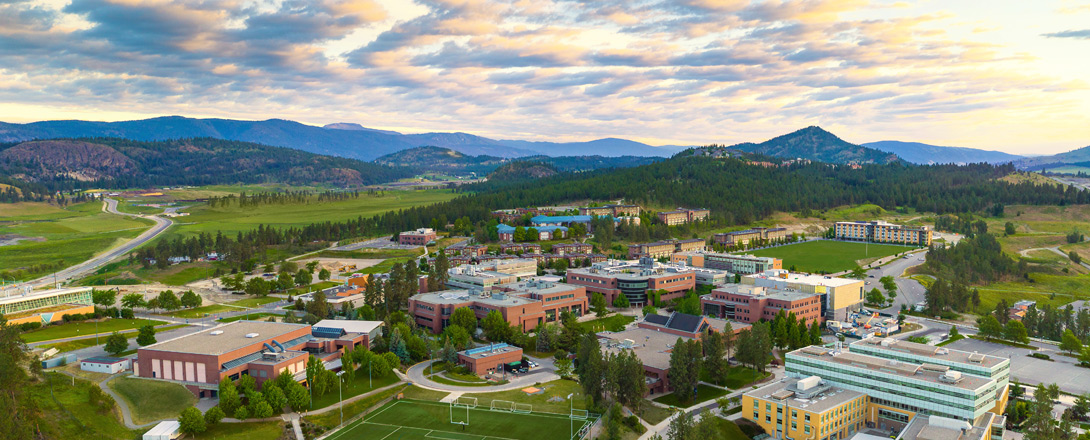
DYNAMIC CITY
UBC’s Okanagan campus borders the dynamic city of Kelowna, a hub of economic development with a population of about 150,000 people—the fourth fastest growing population in Canada. In fact, the Okanagan Valley is rated one of the best communities in Canada to grow your business.
More than 160 buses travel daily from campus to key locations such as Kelowna’s cultural district and thriving downtown waterfront. The campus is two minutes from the Kelowna International Airport, one of the top 10 busiest airports in Canada.
UBC Okanagan is situated within the First Nations territory of the Okanagan Nation, whose spirit of stewardship for the land is reflected in the university’s respect for sustainability.
NATURAL BEAUTY
A diverse natural region with sandy beaches, beautiful farms, vineyards and orchards, and snow-capped mountains, the Okanagan Valley features sweeping stretches of lakeside and endless mountain trails for biking and hiking.
Check out this 360-degree video: Kelowna From Above.*
* Best viewed using desktop Chrome or Firefox (desktop) or YouTube app (mobile).
CAMPUS HOUSING
Full-time UBC Okanagan students can live in residence, which offers modern living with easy access to academic and personal support. Residences are surrounded by hiking and biking trails, plus panoramic views of the campus and valley.
OFF-CAMPUS HOUSING
* UBC does not verify or endorse information shared on this third-party website, which is offered here as a public resource only.
Clubs: Make friends with similar interests, stay informed, and organize or participate in academic and recreational events in the Engineering Graduate Students Society.
Events: Various orientations help graduate students to explore, discover and learn about the School of Engineering, UBC Okanagan, and living in the Okanagan Valley.
Stay active: Take advantage of the many opportunities to get involved and play—from workout space in the new Hangar Fitness and Wellness Centre and our 1,561 square-metre gymnasium, to athletic courts, intramurals, fitness classes and nationally ranked varsity athletics. Have a ball in Sports and Recreation.
Relax: The Graduate Collegium is a gathering place where grad students can hang out, eat lunch, spend time with their fellow students, and attend or host special events. The lounge-style room is open seven days and week and is outfitted with comfortable furniture, kitchen facilities, and individual and group-work spaces.
College of Graduate Studies: Your hub for administrative support and such things as graduate workshops for professional development and for assisting you from the admissions process through to your graduation.
Centre for Scholarly Communication: Supports graduate students, post-doctoral fellows, staff, and faculty in disseminating their research. The Library’s CSC provides one-on-one consultations and workshops, including writing support for theses, dissertations, journal articles, and grant proposals.
Centre for Teaching and Learning: Provides support related to teaching, TA training, and use of technology in educational programming.
Learn more about graduate student resources and support.
Career Development
With a master’s or doctoral degree from UBC’s School of Engineering, graduates are well-positioned to meet the requirements for membership in the Association of Professional Engineers and Geoscientists of British Columbia (APEGBC).
The licensing and regulatory body responsible for BC’s professional engineers and geoscientists, APEGBC is charged with protecting public safety in BC by setting and maintaining high standards of professional practice and ethical conduct for its members and licensees.
Member benefits include professional development and employment resources.
Career Services
Map out your future and prepare to hit the ground running with resources and services provided by the Advising & Involvement Centre.
Tell your story with resumé and cover-letter strategies, and search Work Study jobs for experience relevant to your degree and career goals. You can also book an appointment to meet one-on-one with our career advisor.
alumni UBC
alumni UBC is a member-driven association that offers a variety of lifetime programming and communications to enrich the lives of UBC graduates.
The ‘Your Next Step’ program offers webinars, speaker series and professional development sessions. It is designed to provide advice, tips and resources in areas of career development to graduates for life after university.
Realize the promise of a global community with shared ambition for a better world and an exceptional UBC.












































